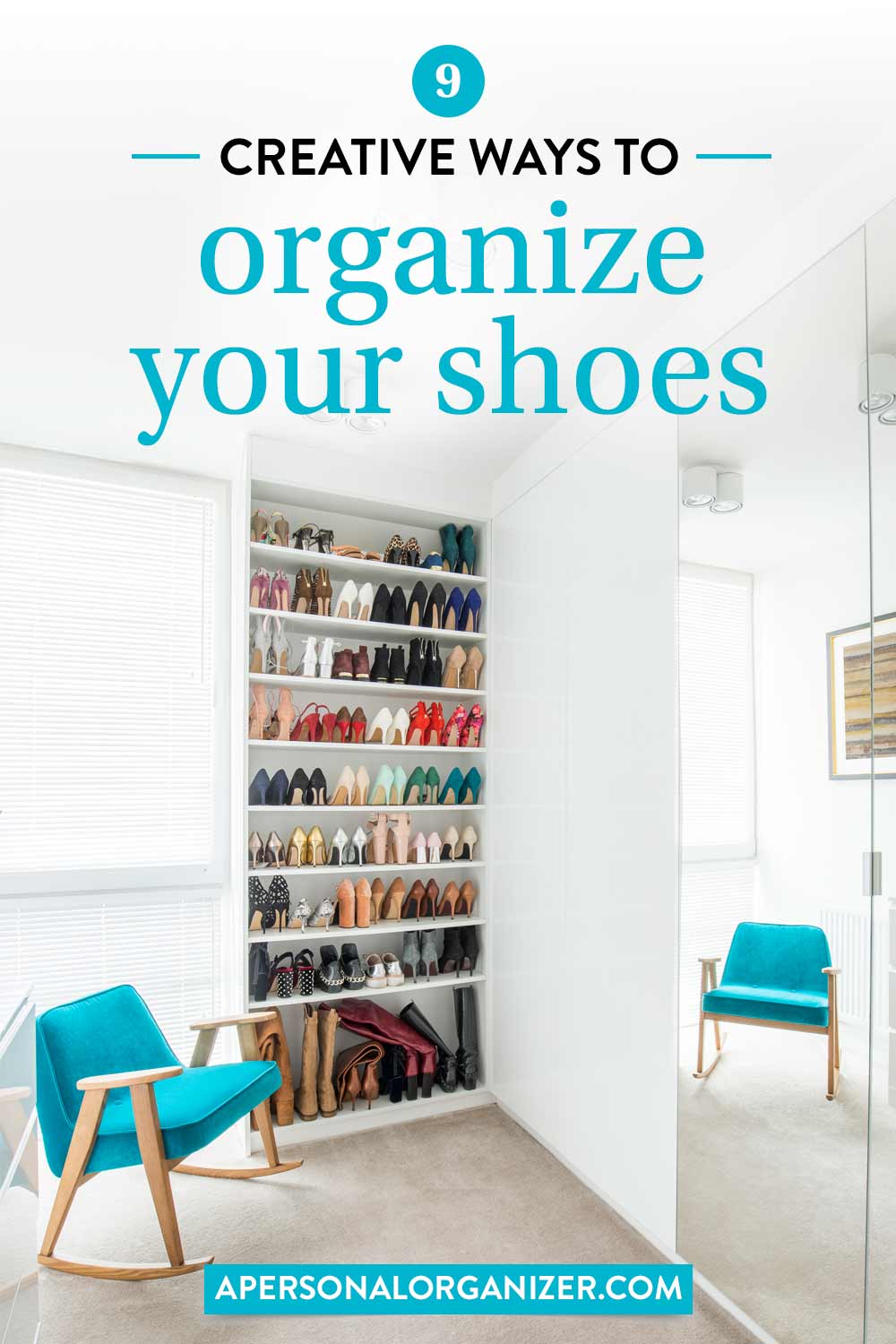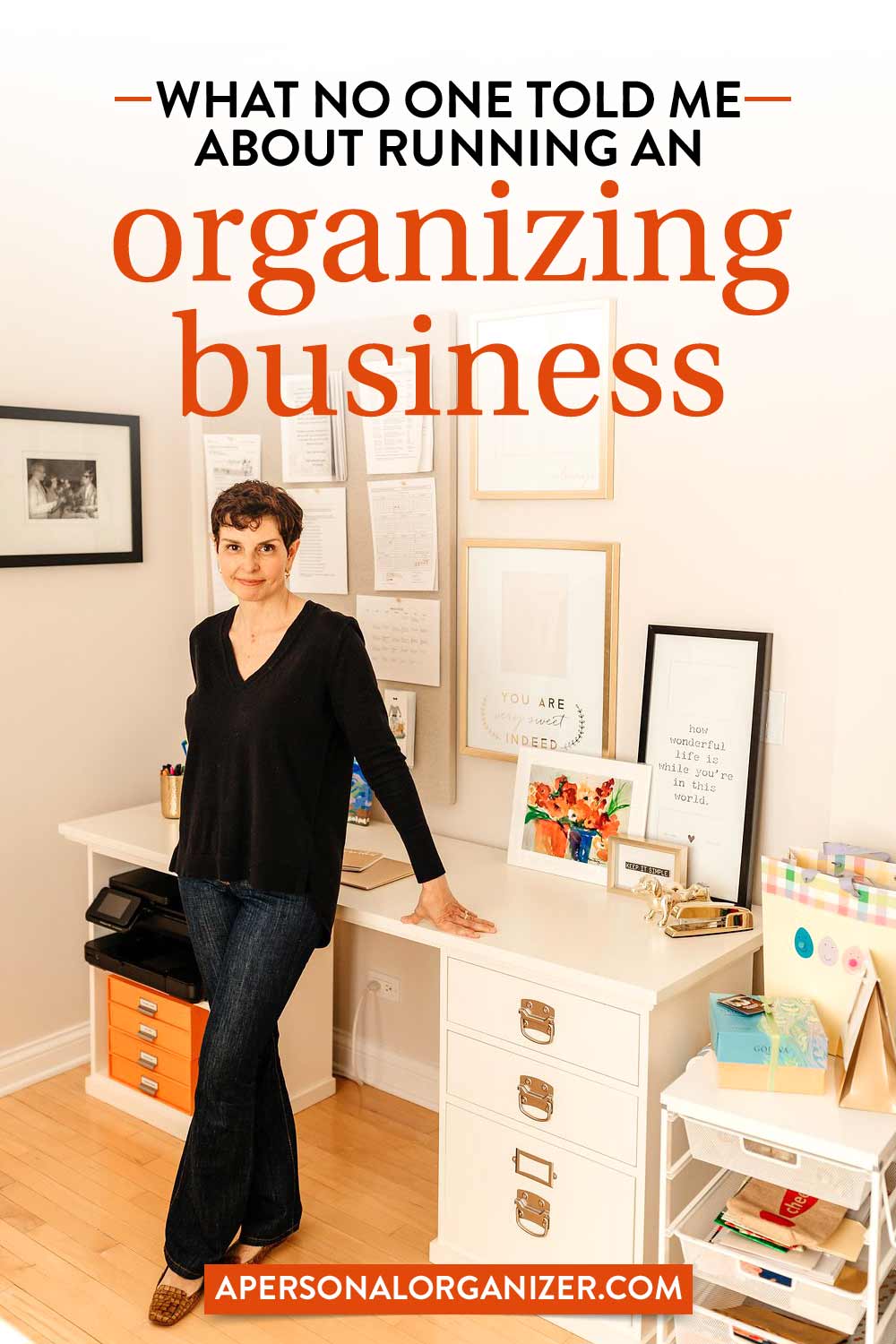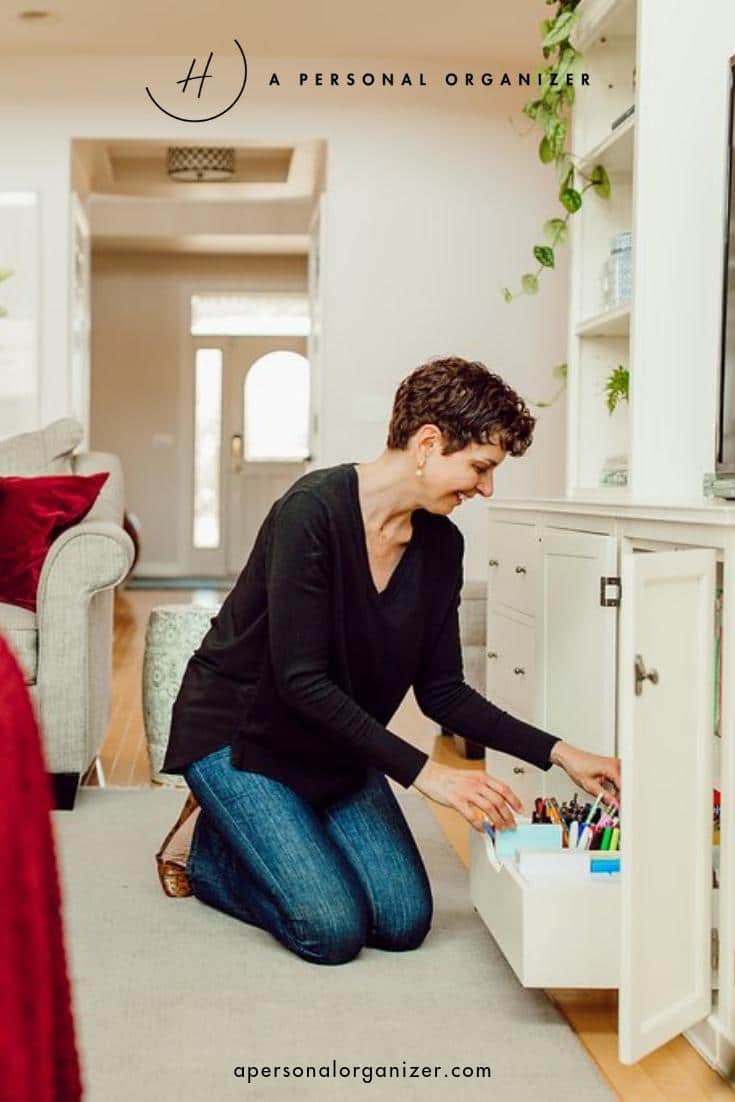Growing Your Organizing Business in Phases
As the great marketer Napoleon Hill once said, “If you fail to plan, you plan to fail.” Planning your new professional organizing business will be a crucial step for your success.
Let’s take a look at some of the things you’ll need to consider when planning to make your organizing passion into a business.

Disclosure: This site contains affiliate links to products and services I have purchased and used for my business. If you decide to use one of the products or services listed on this site, I’ll receive a small commission at no additional cost to you.
1. Your Available Time
How much time can you devote to your new business?
If you’re currently working full-time or if you’re the primary caregiver to your children, you must consider how much time you’ll have available to dedicate to the development of your organizing business, to attend classes, events, meet and network, and of course to organize your clients.
Each of us will do this differently, but here is how I did it.
When I started my business back in 2010, my children were starting first grade and kindergarten. That gave me the school hours and the evenings to work and learn after they were in bed. In the morning, I made myself available to work with clients, initially as a sub-contractor, and I’d work at night on listening to ICD, NAPO, and business development classes. This routine would quickly add up to 8 hours of work a day, and I followed it for many years, and I am glad I did it.
Remember that this initial period of building a new business can be pretty intense. But it is not only gratifying; it will create a strong base for your business to grow. When your clients start filling up your calendar, you’ll already have what you need in place.
My best tip: use this time to get the groundwork done.
2. Know Thyself
When we’re just starting, we may feel that anyone with a pulse and checkbook can be our clients, and while you may be eager to fill up your calendar, start making money and want to try different types of organizing projects and clients, with time you’ll find you may not love all of them.
The truth is that most people associate professional organizing with closets, garages, and pantries. Still, the fact is that this industry has evolved into an extensive list of possibilities, and a quick search on NAPO’s website will show you the many specialties it now offers. From students to digital, seniors to people with disabilities, there is a specialty that’s just for you.
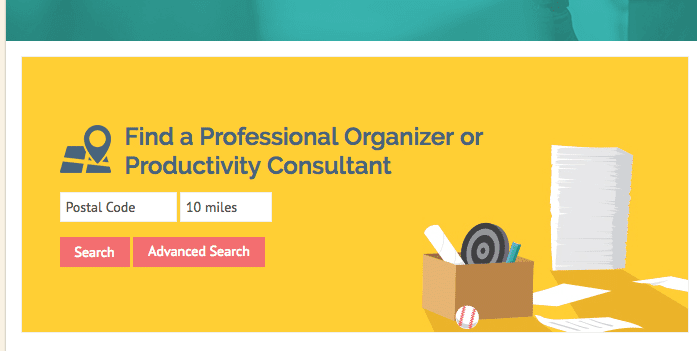
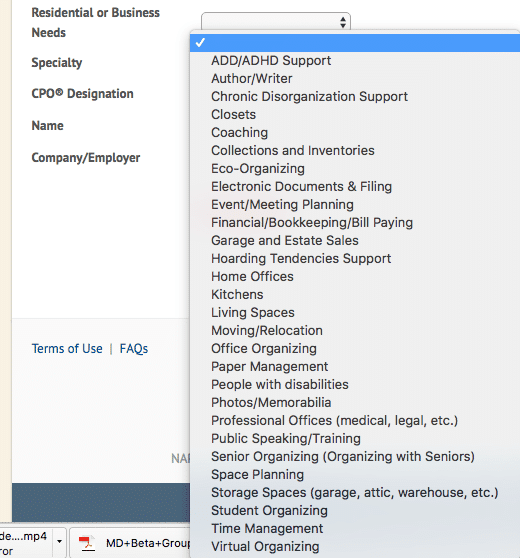
For you to find your sweet spot, that thing that gets you out of bed excited for a new project, I recommend that you understand and fully embrace who you are, know your strengths and how you perform your best.
Consider what services you can offer and with who you’d like to work. Do you enjoy working alone or with a team? What age group would you like to spend time with? Do you have professional or academic expertise you’d like to integrate with your new business? These are just initial questions to get you thinking about the direction you may want to go. For example, if you love transforming people’s homes into a super-organized space, spending time rolling up your sleeve, and getting in the thick of it while surrounded by families, pets, and more, great. On the flip side, if you prefer working in a professional setting, you may want to focus your efforts on organizing small businesses or corporate-size offices.
My best tip: Focus on who you are and what you like, and don’t compromise on what is essential for you. You and your future clients will be glad you stayed true to yourself.
What to do when starting your Professional Organizing Business? Follow me!
3. Consider Location
Like with who you’ll like to work with, this will evolve as your business grows but in any case, if you have limited hours and if your location permits, I suggest you stick to zip codes you’ll be willing to drive to.
If you live in a smaller city, you may have to be open to driving to nearby towns to expand your business; however, if you live in a large city, stick to nearby areas and save time, gas, and your sanity.
I started accepting clients far from my home, but as I realized how much time I was spending in traffic, I started narrowing it down to no more than a 20 min drive and would stretch that only for larger projects or longer working blocks of time.
Best tip: List the cities/neighborhoods you’ll be willing to serve and list them on your website at the bottom of every service page.

4. Consider Your Business Branding
An exciting part of starting your organizing business will be the development of your branding. However, this can also become a distraction. So, if you’re not sure if professional organizing is for you, wait a bit to invest in this area later on. As you commit to it and the business idea matures, you can invest resources on what’s needed.
Selecting a Business Name
When choosing a business name, pick one that communicates what you do. Have fun with it using a tool like bustaname.com. Once you select some contenders, be sure to search online with your Secretary of State to verify if the name is available. Also, search on social media platforms to see if another business is using the name.
Think of the ideal URL for your business. Skip on abbreviations that only make sense to you; keep it short, sweet, and clear.
As I said, you can always start working with your name, and as your business grows and you understand what you want to offer, you can decide on your business name.
Selecting the Elements of Your Business Brand
Start paying close attention to what you like in terms of colors, typography (fonts), images, and the language used in the communication of your favorite websites, magazines, stores, coffee shops, etc. Ask yourself, “what do I like about them?”.
Create a Pinterest board with the elements you’d like to consider, or even build a vision board where you can add printouts of magazines you like.
Research and read about branding to educate yourself on what’s important to keep in mind. A fellow B-Schooler and branding expert whose work I love and always recommend is Sarah Hart. You can take her branding quiz as a first step in figuring out what you want your branding to communicate.
Once you are sure you want to invest in this business and take it seriously, have the logo designed professionally. To have an idea of what’s available in this area, search sites like 99designs.com.
Best tip: invest in your branding once you’ve decided professional organizing is for you.
5. Choose a Business Structure
Decide on the type of legal organization you want for your business.
Professional organizers’ most commonly used business structures are the sole proprietorship and Limited Liability Company (LLC.). Still, there are others, and you should consult with a CPA or a small business lawyer to understand each of them and what you should do next, like applying for a Tax ID or Employee Identification Number (EIN). You can learn more about the EIN here.
You will find more detailed information about each business structure option here and on your State’s Secretary of State website. Also, count on services like legalzoom.com, which I have used before and have always been happy with their services and support.
Best tip: invest in a consultation with a CPA or a small business lawyer.
6. Set-Up Your Business Bank Account
Once you have decided and established your business entity, you may set up a business bank account. Research your options to avoid fees and minimum balances. Also, consider placing some start-up money in the account to get your business off the ground, but otherwise, always keep your personal finances separate from your business ones.
You won’t have significant expenses initially, even more so if you’re testing the waters. Still, as you decide to make professional organizing a real business, you’ll need money to invest in the basics, which we’ll cover later.
Best tip: invest in an accounting tool like Freshbooks or Quickbooks online.
7. Set-Up Your Workspace
No matter how small, try to create a workspace where you can answer calls from prospective clients, take classes and sit down to write and create your business-related materials. As your work with clients expands, so will the admin needs. Having a space to open the computer and get things done will be a great way to ground and dedicate yourself to your business growth.
Best tip: Start small with an IKEA desk and drawer unit in a quiet corner of your house.
8. Balance Your Time
This will fall under the time management category. Still, as you see your business grow, you’ll have to find the perfect balance between working with clients, marketing your business regularly, taking care of administrative tasks such as replying to emails or accounting, and your professional development.
Planning allows you to recognize and work out any kinks in your system before facing them. This gives you more time later to focus on tasks that help you grow your business.
Best tip: to avoid burnout, you need to understand that you’re in this for the long term and commit to what needs to make your business succeed and make you happy.
And there you have it! I hope this list and tips will help you get your professional organizing business started.
I know it may seem like a lot, but remember that you are starting a business and not a hobby and that you can always pace yourself; after all, this is your business!



